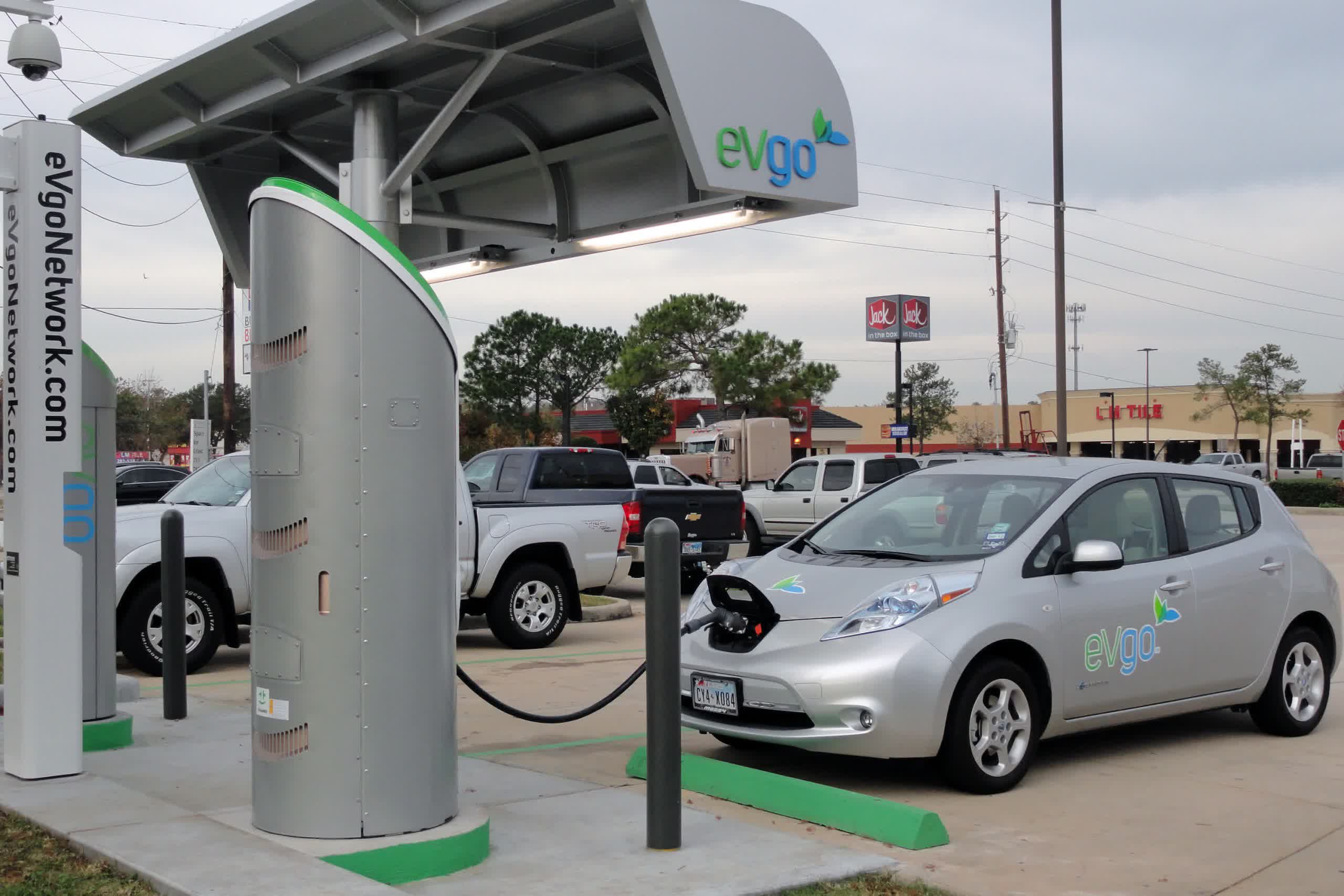What just happened? In a major development that could help make electric vehicles more mainstream in North America, Walmart has announced plans to install EV charging stations at thousands of its US stores by 2030. The new chargers will be in addition to the almost 1,300 EV fast-charging stations the company has already installed in partnership with Electrify America at more than 280 of its facilities across the country.
In a blog post announcing its new roadmap, the world's largest retailer said that the chargers will be installed at both Walmart and Sam's Club locations to make EV ownership "more accessible, reliable, convenient and affordable."
According to the company, the upcoming "coast-to-coast" network will not only make it easy for people to charge their vehicles close to their home, but also help those who are taking their EVs on a cross-country trip by offering them a convenient and affordable charging option in a "clean, bright and safe location."
Walmart says that its stores, including Supercenters, Neighborhood Markets, and Sam's Clubs, are located within 10 miles of approximately 90% of Americans, which should help millions of EV drivers across the US get a convenient charging option, irrespective of whether they live in rural, suburban or urban areas.

The planned EV charging network is part of Walmart's efforts to help reduce automotive emissions for a more sustainable future. Towards that end, the company has already started transitioning its fleet from diesel to compressed natural gas (CNG) and electric to reduce its carbon footprint and become a zero-emission organization by 2040.
Alongside Walmart, a number of other companies have also announced their own nationwide EV charging networks over the past year. That includes the likes of 7-Eleven, BP, DC-America, Ikea and Starbucks, some of whom have tied up with Electrify America and ChargePoint to take care of the logistics.
Electric vehicles have become increasingly popular in the US over the past few years. Tesla is by far the leading EV manufacturer in the country, with its Model Y being among the highest-selling cars across all segments. The company reported record deliveries in Q1, 2023, helped in no small measure by recent price cuts. Last year, EV sales in the US rose a whopping 65%, even as total vehicle sales dropped 8%.
The federal government has also been offering several incentives to EV buyers to help them make the switch to lower-emission cars. A notable example is the $7,500 tax credit on several EV models, as well as the $5 billion in federal funding earmarked for a nationwide EV charging network.
